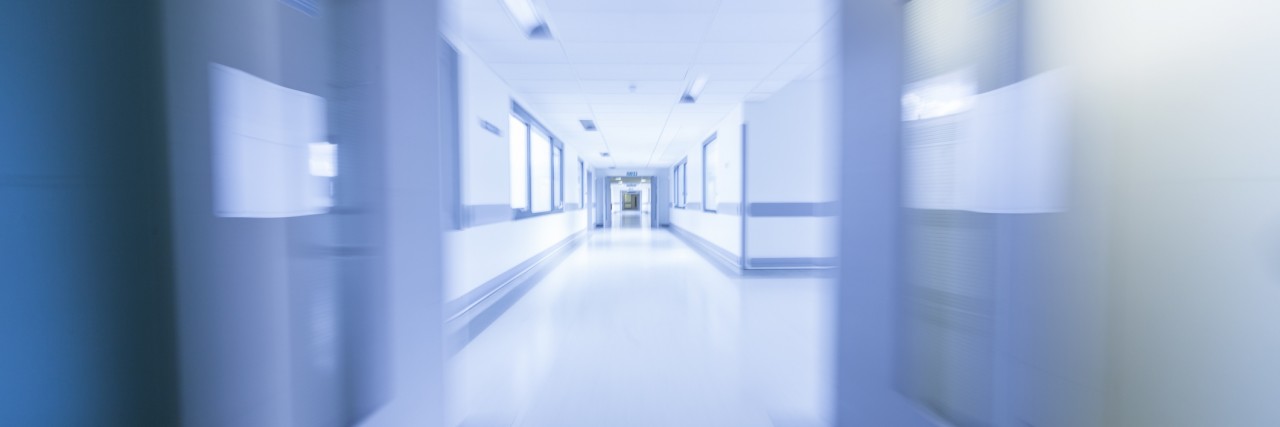What Being in a Psych Ward Was Like as a Person With Schizoaffective Disorder
I gave them my cell phone. I surrendered my purse. I handed over the pen behind my ear. Made bare, I was scared. They put me in the “holding area” – their poor choice of words.
I entered a room with steel gray walls, a plank to sleep on, a flaccid pillow, and a thin blanket. The toilet did not have a toilet seat. It was all metal. Wetness was on the ground. I was not sure if it was urine or water.
They would not give me a toothbrush. Toothbrushes, I assumed, could be turned into weapons. Pencils and pens are also no-nos. Probably for the same reason.
This was my first bout with hospitalization with mental health since I was 23.
Eventually, a nurse called me to take my “vitals” – blood pressure, temperature, height, and weight. I adjusted the scale for him. I am over 200 pounds these days. I know which weight on the scale to use.
A psychiatrist and a cadre of medical interns came in afterwards and asked my suicidal intentions and ideation and history of mental illness. Did I have a plan to kill myself?
Of course.
“Does anyone in your family have mental illness?” asked the physician.
Yes.
According to the National Alliance on Mental Illness, “Schizoaffective disorder is a chronic mental health condition characterized primarily by symptoms of schizophrenia, such as hallucinations or delusions, and symptoms of a mood disorder, such as mania and depression.”
The psychiatrist determined I was fit to admit. However, I was not prepared for my first of three hospitalizations of that year.
Inpatient hospitalization is full of regimentation – when you eat, sleep, and go to group therapy and other treatments. The hourly programming could be rough or dull, but sometimes, a little light enters your mind and imprints you with a touch of wisdom that feels soft as a Persian cat or burning like stoked coal. My realization is I want a simple life without the stress of my former attorney jobs.
Inpatient is a time to evaluate your wants and needs – two entities that don’t always twine together. Some people are more “functional” than others. Sometimes they are scary. Sometimes you make friends. I met my roommate this way.
I could only look forward to getting my medications correct, playing board games, and the food. I was fed like a queen – barbecued chicken, beef stew, baked cod, fruit, and oodles of Greek yogurt in peach or black cherry. My morning oatmeal had raisins, brown sugar, and granola. I will never get over the food.
At the end of 10 days of treatment, I felt a little hope as they give back my cellphone, purse, and pen.
But was I immediately better? Could I be immediately better? Not really, but I was in a better place than I was before.
If you or someone you know needs help, visit our suicide prevention resources page.
If you need support right now, call the Suicide Prevention Lifeline at 1-800-273-8255.
We want to hear your story. Become a Mighty contributor here.
Thinkstock photo by Spotmatik

